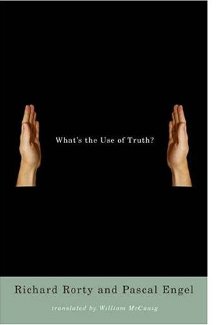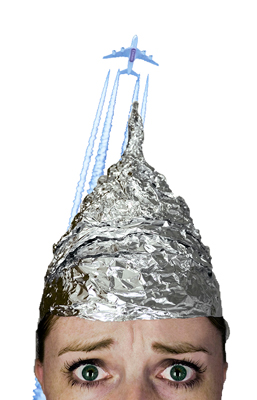 Book: Richard Rorty and Pascal Engel, What’s the Use of Truth?
Book: Richard Rorty and Pascal Engel, What’s the Use of Truth?
Publication date: 2007
Publisher: Columbia University Press, New York, NY
” . . since Plato the meanings of normative terms like good, just, and true have been problems only for philosophers. Everybody else knows how to use them and does not need an explanation of what they mean.”
Richard Rorty in What’s the Use of Truth?
Camus ends The Myth of Sisyphus with an ecstatic portrayal of an imagined future in which people would contentedly till their fields and haul their water with no thought to a fictitious heaven awaiting their deaths. The tone of the rest of the book is so dispassionate that his fervour practically flies off the page. I couldn’t help but be struck by the realization that this vision of pastoral felicity was?heaven!
And then I understood that the problem was not the concept of a heaven but rather the worship of a hypothetical future world at the expense of the present. Such worship keeps you both from seeing the heaven all around you and from responding attentively to the suffering of others.
Richard Rorty treads on the same thin ice when he asserts that our primary responsibility is to our fellow human beings. He makes this claim after quoting Henry James’s dictum that we must stop believing we have an obligation to God, and Sartre’s that we must stop inventing God-surrogates.
The danger is that the ?fellow human being? can become a God-surrogate. The problem, similar to Camus?s, is not with the idea of serving fellow human beings, but rather with the idea of responsibility. I’d like to see a discussion of these questions from the point of view of someone who chooses to obey God and serve her fellow human beings out of an overflowing of compassion cultivated by a long-term and deliberate mindfulness as opposed to a sense of obligation. But that wouldn’t be philosophy.
 In What’s the Use of Truth? philosophers Richard Rorty and Pascal Engel present two seemingly opposing views regarding the use and the meaning of the concept of truth. Engel eventually suggests that Rorty’s attempts to divest the notion of truth of its classical philosophical status as an intrinsic good, reducing it to a useful social tool, will end in the notion disappearing entirely.
In What’s the Use of Truth? philosophers Richard Rorty and Pascal Engel present two seemingly opposing views regarding the use and the meaning of the concept of truth. Engel eventually suggests that Rorty’s attempts to divest the notion of truth of its classical philosophical status as an intrinsic good, reducing it to a useful social tool, will end in the notion disappearing entirely.
Rorty responds: ?I do not believe that people will become less sincere or less concerned to be precise because they have become pragmatists . . . When the thinkers of the Enlightenment dissociated moral deliberation from divine commands, their writings did not provoke any notable increase in the amount of immorality? (p.43).
I became enamoured of existentialism in university when I saw the extent to which its proponents swept up the debris of false 19th century assumptions. My impulse when beginning this book was to side with Engel, as a superficial reading led me to see him as a defender of truth.
As the argument unfolded it revealed my sloppy thinking for what it was. If Rorty manages to clean up this kind of lazy reasoning, I’m grateful; more power to him. And if Engel and his ilk can keep Rorty and his fellow pragmatists from throwing the baby out with the bath water, good on him, too.
Why would a painter, a dancer, a writer, a musician, an actor, or a director choose to read a book like this, you might ask. Well, if you look back on your approach to your art you will recognize that the meaning you infuse into it is influenced directly by the way you think about life, yourself, and other strange fish. The continuation of inspiration is partly dependent on the intellectual growth you experience, especially when that growth is in an area significant to your audience.
What’s the Use of Truth? lives up to three of The Mindful Bard’s criteria for books well worth reading: 1) it gives me tools enabling me to respond with compassion and efficacy to the suffering around me; 2) it stimulates my mind; and 3) it poses and admirably responds to questions which have a direct bearing on my view of existence.
The Bard could use some help scouting out new material. If you discover any books, compact disks, or movies which came out in the last twelve months and which you think fit the Bard’s criteria, please drop a line to bard@voicemagazine.org. For a list of criteria, go here. If I agree with your recommendation, I’ll thank you online.

